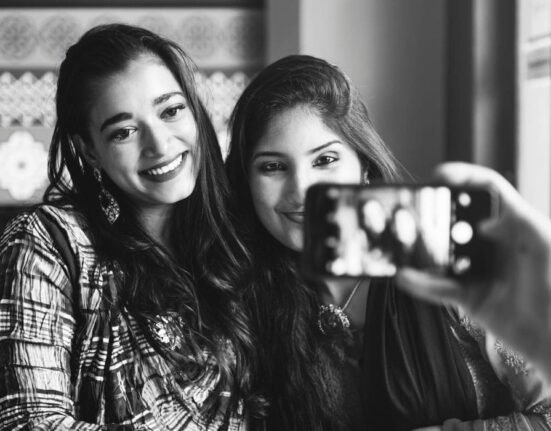Love or romance, which a beautiful part of an individual’s life where the brain’s reward system takes a role which is the for beautiful days are enclosed in the first few weeks and months of any attraction and romance. Dopamine a hormone produced by the hypothalamus in the brain is the main lead for the working of the reward system in the intellectual part. This hormone makes you feel good when you are loved and with loved ones. Dopamine plays a huge, role when you are spending time or having a romance with a partner. High levels of dopamine hormones, namely norepinephrine are released so that the individual will feel more energetic, excited, giddy, etc. This also leads to insomnia or lack of appetite where it is said “ so in love that “ can’t eat or sleep. This hormone acts in quick response to any triggered behavior too.
Attraction leads to a reduction in serotonin, which plays a huge role in the part of mood and appetite. This also plays an important role in the part of obsessive-compulsive disorder OCD also has low serotonin, which overlies the dominance of the feeling of love.
Can you control love?
Love can help in bonding more closely towards one another, which will also affect physical health. It also plays a huge role in the immune system and studies proved that it could reduce the chances of causing cancer.
Studies prove the control of emotion or feelings as a part of situation destruction suppressing of expressive thoughts, and cognitive reappraisal.
According to theories of triangular love American psychologist Dr. Robert Sternberg explains love in three main domains:
- Intimacy (emotional)
- Commitment (cognitive)
- Passion (physical)
Types of Love:
- Liking: sharing of emotional intimacy, but no physical love or actions.
- Infatuation: physical attraction with no emotional connection.
- Empty: Empty love is a commitment with no passion or emotional connection.
- Romantic: emotional and physical connection with no long-term commitment.
- Companionate: commitment and emotional intimacy, maybe with friends or family. Marriage also counts in because though passion is gone emotions and commitment stay.
- Fatuous: commitment without emotional intimacy
- Consummate: love with commitment, passion, and emotional intimacy all three.
Falling in love is associated with positive psychology, which narrows the mental focus, relaxedness, and many positive thoughts. When the people in love spend time together then they form love euphoria. The theory states romantic love and infatuation are not long-term, but still, the reward system works the best way for it. It is also said one person in love tolerates everything and has a lot of patience to deal with things. At the same time, there are fantasies that follow in counting on the structured details about cloud nine.
Passionate Love vs. Companionate Love
There are various studies explaining how the love, and support system works when an individual is dependent on each other and there are also studies where the person thinks or cares only about them or connecting every day to day activities to them. People in love also schedule their time and day accordingly investing more factors to their day-to-day activities.
According to the Handbook of Oxford, social psychologists focused on this subject majorly. Famous psychologists such as Freud and Watson glazed the topic of love in the 1920s. Until 1970 though there was no much focus on this stream and later research was done regarding love and focused more on this field.
The social psychologist later argued that love is not only one entity, but is connected with conceptual in terms of passionate love and companionate love. Also categorized as emotional, physical, and sexual arousal. Another approach to love in psychology is to be learned from descriptive psychology. In descriptive psychology, different scholars have different paradigm case formulations to define sufficient features.
Individual and cultural differences in love
As expected, everyone has different preferences for love conceptualizations. Everyone may not experience love the same way, but research state that physical, gender, and emotional connection varies according to environment or cultural factors.
Gender differences in love
Both men and women have different attitudes towards love. Though there might be the same goals. But the showcase of their love is based on the actions they were brought up from or the place they live in. Boys may not show love publicly but women tend to showcase all fairy and cute aspects.
Therefore the love of psychology is a new and trending field of research where most of the factors are suggested and is subjective to youngsters where married couples also express the beautiful factors they feel when loved and claim how happiness and family are balanced with facts of love.
Love has been part of every individual or living thing since the mythological era. Counting from ancient times and history, psychology is a fascinating subject that counts in everything in detail.













Leave feedback about this